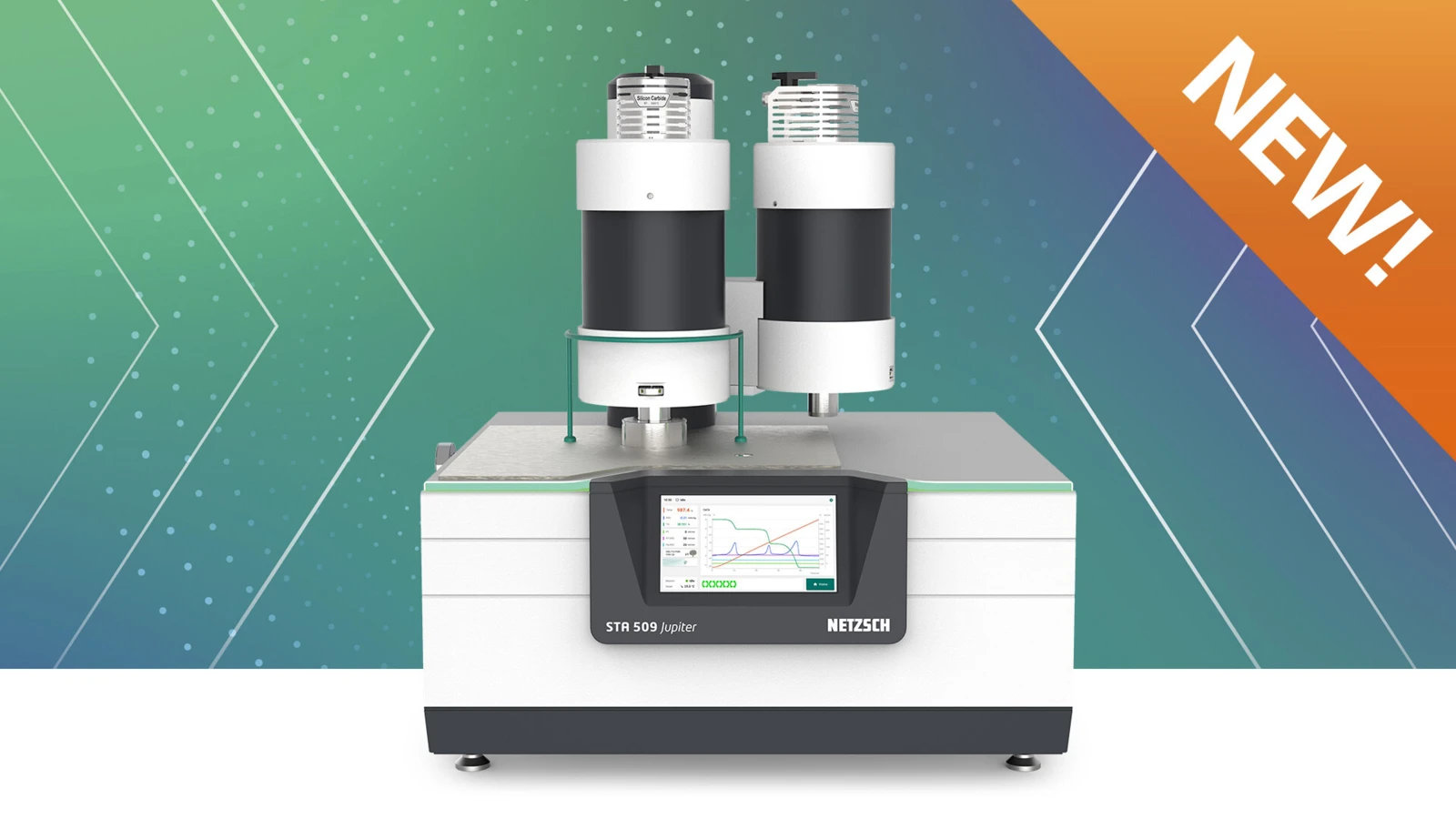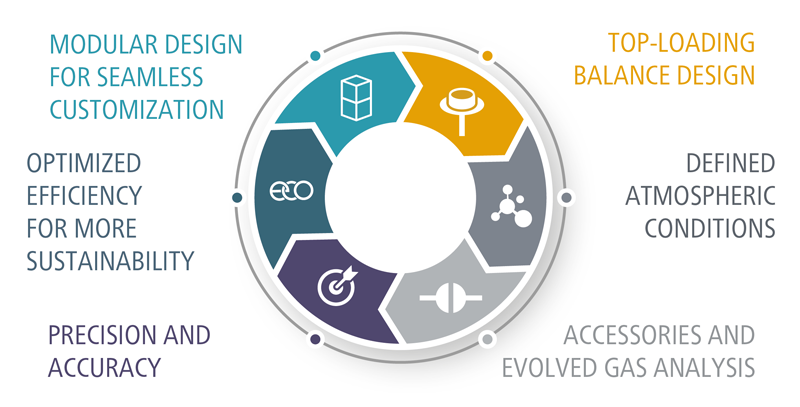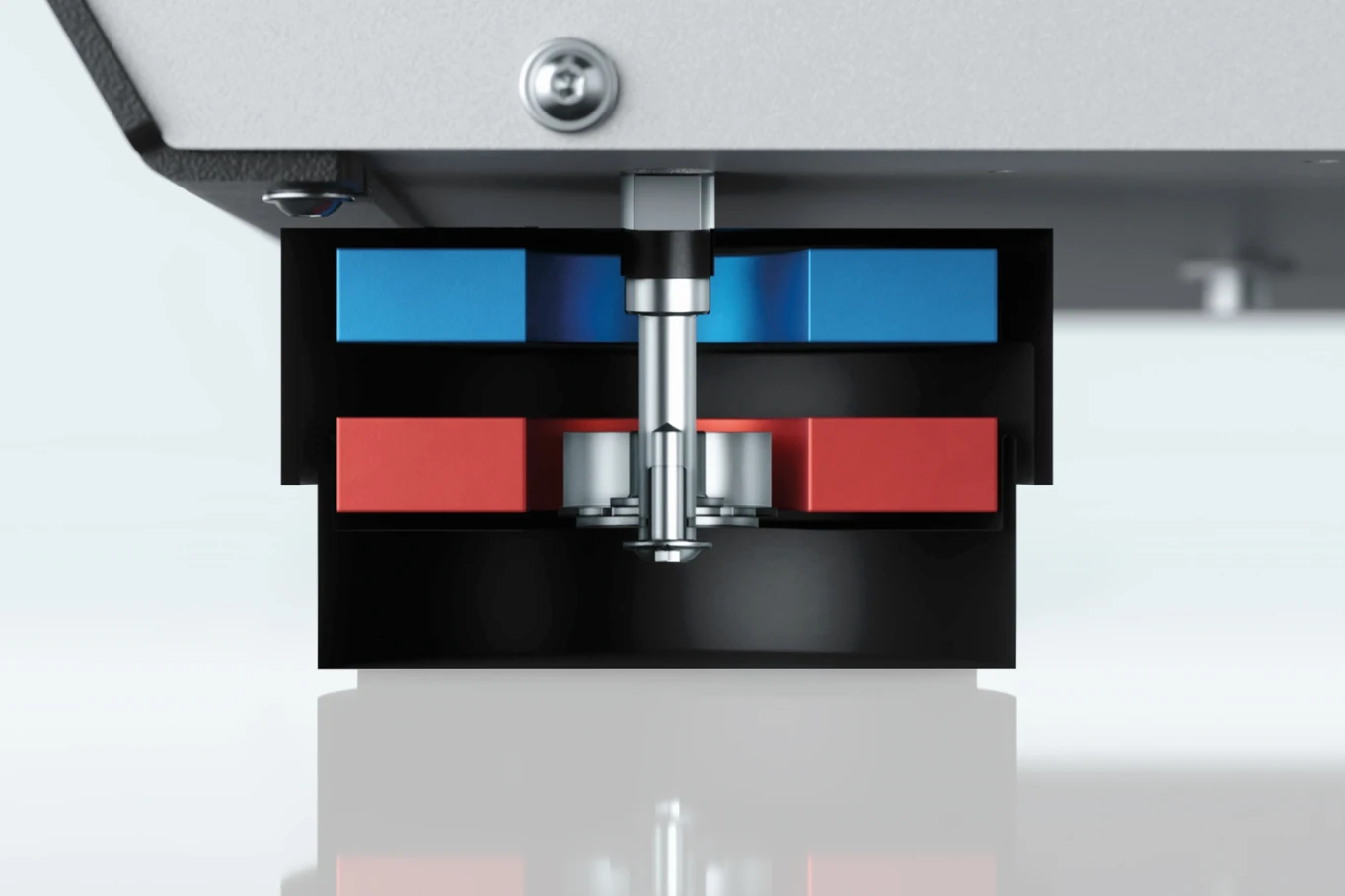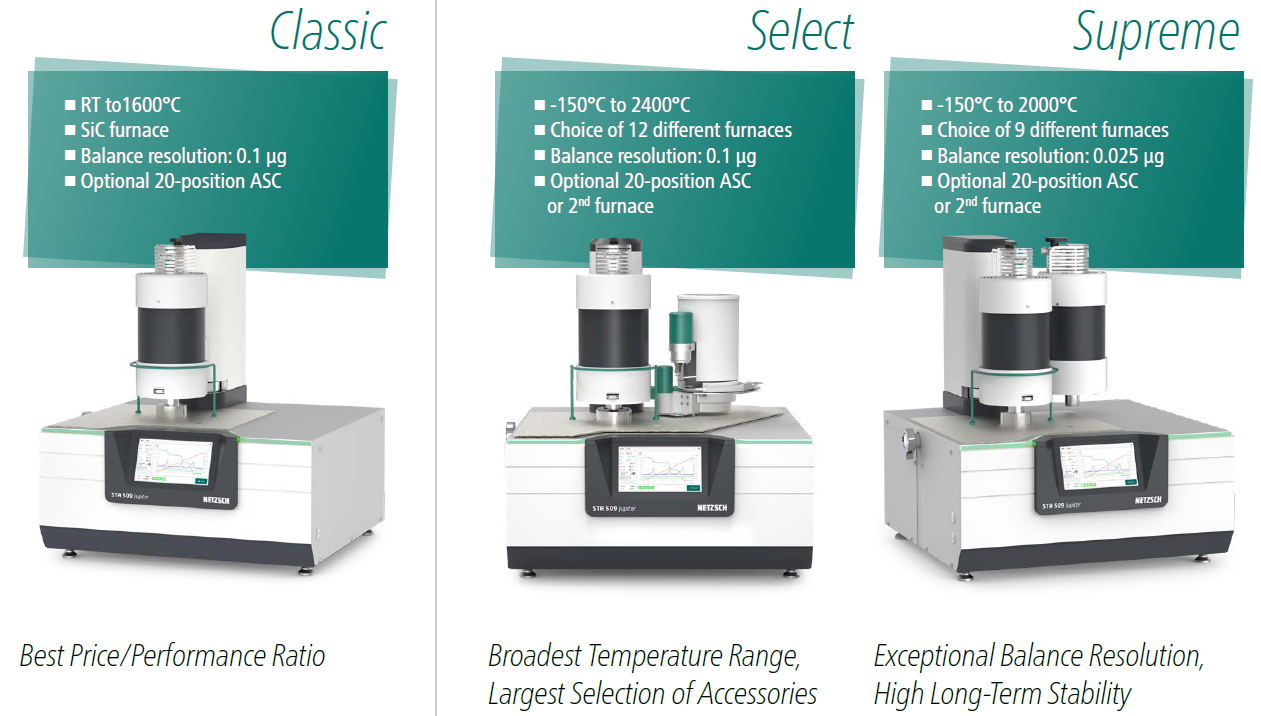
12.06.2024 by Dr. Chiara Baldini, Aileen Sammler
Unveiling the New NETZSCH STA 509 Jupiter® Series: The Modular High Performer
For nearly five decades, NETZSCH's Simultaneous Thermal Analysis (STA) systems have been renowned for their cutting-edge technology and versatility, combining Thermogravimetric Analysis (TGA) and Differential Scanning Calorimetry (DSC) in one system.
The STA approach enhances data accuracy and reliability by maintaining identical test conditions, enabling precise differentiation between phase transformations and Decomposition reactionA decomposition reaction is a thermally induced reaction of a chemical compound forming solid and/or gaseous products. decomposition reactions.
This has made STA over the years an essential technique for understanding the thermal properties and behavior of a broad material range, across many scientific and industrial applications.
The NETZSCH STA concept was clear from the outset: to create a modular setup, based on robust and easy-handling top-loading balances, to allow for highly flexible measurement configurations with only a few modifications needed, which the users can easily perform themselves. This concept is still the core of NETZSCH state-of-the-art STA solutions – also for our new product line, the STA 509 Jupiter® series!

Reliability and Ease of Use in Eco-Design
The system comes in the new award-winning design, already introduced with other instruments that we recently launched: DSC 300 Caliris®, DMA 303 Eplexor® and TG 309 Libra®.
The front panel of this new design integrates two key elements:
- a colored LED strip, which conveys instrument status information, such as measurement progress or required user interactions,
- a touchscreen display, which allows for starting a new measurement, for checking the progress of a running measurement or the status of a recently finished one, plus many other tasks.
The rear panel includes up to four Mass Flow Controllers, to enable precise handling of high-purity atmospheres, accommodating various inert, oxidizing, reducing and corrosive gases.
To further improve the reliability of the measurements, newly patented magnetic shock absorbers are available, thus allowing for better shielding from external influences such as vibrations.

Finally, looking at the increasing sustainability demand, NETZSCH eliminated the external thermostat, reducing the average energy consumption by 70%. The weighing chamber's temperature is now electronically controlled, thus ensuring excellent stability.
Additionally, the Eco Mode further economizes operations, by turning off purge gases when not needed.
The synergy between electronic temperature control and Eco Mode, make the STA unit more cost-effective and significantly reduces your carbon footprint.
Watch our video to learn more about the new features:
All Features at a Glance
One STA Series, Three Instruments: A Solution for Every Need
As introduced for other instrument series, the new STA 509 is also presented in 3 versions, designed to cover all analytical needs and every budget:
- The STA 509 Jupiter® Classic with its exceptional price/performance ratio is the perfect choice for routine analysis up to 1600°C, thanks to its robust silicon carbide furnace, and comes with a broad balance load up to 35 g.
- The STA 509 Jupiter® Select is the choice for industrial and academic research. It provides optimal performance and DSC sensitivity for a wide range of applications, offering a broad temperature range by being able to use a second furnace. Choose from among twelve different available types
- The STA 509 Jupiter® Supreme is the benchmark in simultaneous thermal analysis, tailored for cutting-edge research and development, with its unparalleled precision, a balance resolution of 25 ng, and long-term stability.

All STA versions can be coupled to a Quadrupole Mass Spectrometer, to an FT-IR Spectrometer or to a GC-MS to investigate the gases released during thermal Decomposition reactionA decomposition reaction is a thermally induced reaction of a chemical compound forming solid and/or gaseous products. decomposition.
An additional hot cell and glovebox version is soon to come.
Flexibility Still Fascinates
When selecting an STA instrument, it is crucial to match its technical capabilities with your specific application needs, but also to be ready to easily adjust the system if new research tasks are requested. This is when the decades of experience at NETZSCH come into play.
The STA 509 series is a future-proof solution designed to meet the needs of advanced industrial or academic laboratories that want to invest in a solution capable of following the ever-growing materials science scenario.
The Select and Supreme versions can be used together with a second furnace to increase sample throughput or to test different materials that require specific different temperature programs, i.e., polymers and metal alloys.
You can choose from among 12 different user-exchangeable furnace types, to cover the entire temperature range from -150°C to 2400°C.
Thanks to its top-loading design, the STA 509 features a “Quick-Connect” system, which allows to change thesample carrier in seconds, enabling researchers to maximize instrument utility and effectiveness.
TGA, TGA-DSC and TGA-DTA sample carriers are available with different thermocouples, to adapt the system to the measurement goals and to the applied temperature range or, to the requested DSC sensitivity. Each sensor is automatically recognized by the software and stored in a sample carrier database.

Take a look into our Accessories Catalogue!
A broad selection of crucible types of different materials completes the offer.
Take a look into our Accessories Catalogue for DSC, TGA and STA to find out more:
STA(Y) TUNED!
Stay tuned, next week we will introduce more highlights of the STA 509 Jupiter® series and further new features for advanced applications!
Meanwhile, download the new STA 509 Series brochure for a deeper insight into our Proven Excellence!